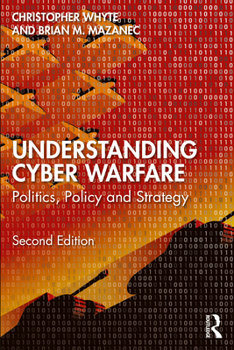Understanding Cyber-Warfare: Politics, Policy and Strategy
Select Format
Select Condition 
Book Overview
This textbook offers an accessible introduction to the historical, technical, and strategic context of global cyber conflict. The second edition has been revised and updated throughout, with three new chapters.
Cyber warfare involves issues of doctrine, strategy, policy, international relations (IR) and operational practice associated with computer network attack, computer network exploitation and computer network defense. However, it is conducted within complex sociopolitical settings alongside related forms of digital contestation. This book provides students with a comprehensive perspective on the technical, strategic and policy issues associated with cyber conflict, as well as an introduction to key state and non-state actors.
Specifically, the book provides a comprehensive overview of several key issue areas:
The historical context of the emergence and evolution of cyber warfare, including the basic characteristics and methods of computer network attack, exploitation and defense An interdisciplinary set of theoretical perspectives on conflict in the digital age from the point of view of the fields of IR, security studies, psychology and science, technology and society (STS) studies Current national perspectives, policies, doctrines and strategies relevant to cyber warfare An examination of key challenges in international law, norm development and deterrence; and The role of emerging information technologies like artificial intelligence and quantum computing in shaping the dynamics of global cyber conflictThis textbook will be essential reading for students of cybersecurity/cyber conflict and information warfare, and highly recommended for students of intelligence studies, security and strategic studies, defense policy, and IR in general.





